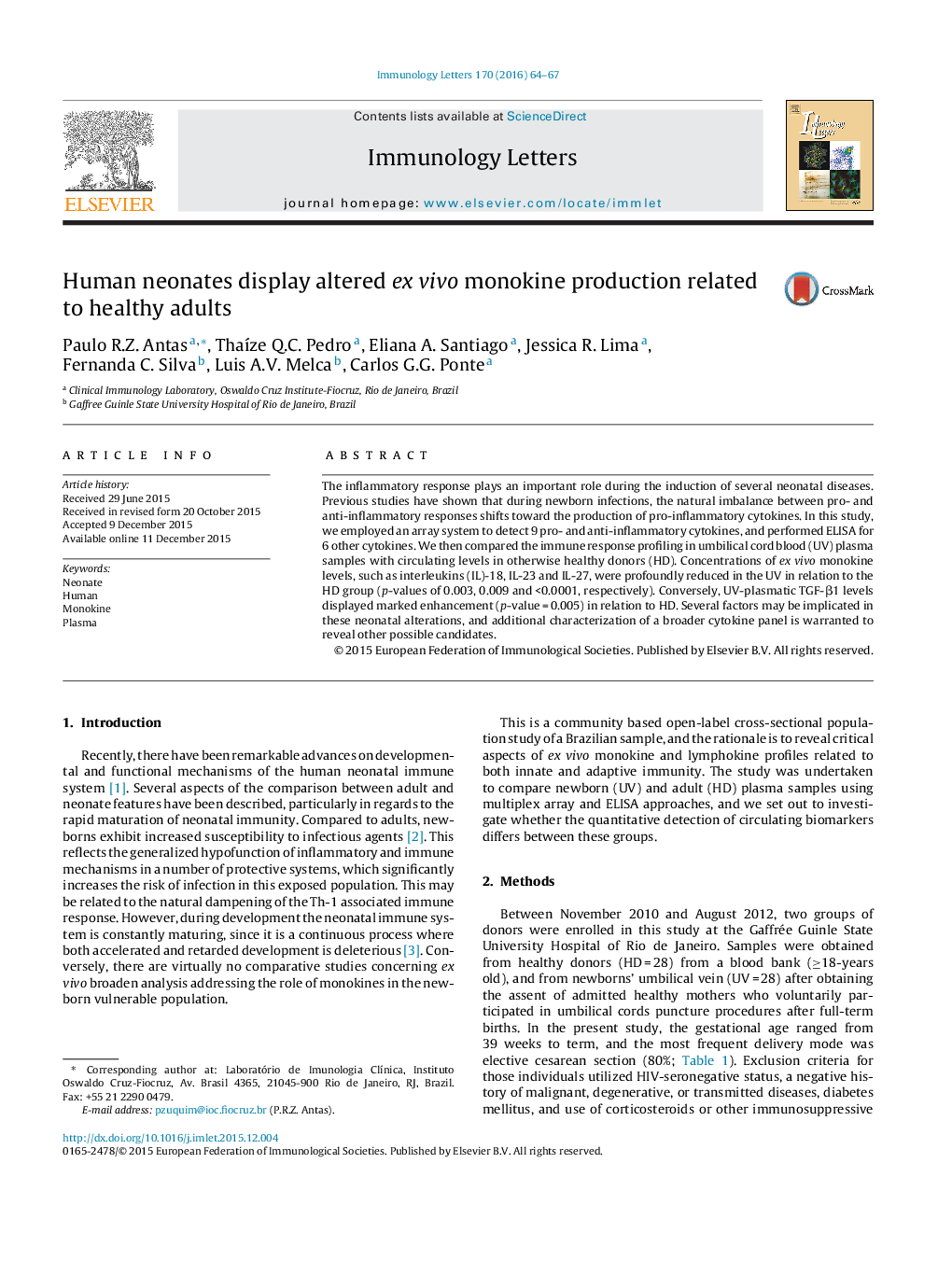| Article ID | Journal | Published Year | Pages | File Type |
|---|---|---|---|---|
| 3355259 | Immunology Letters | 2016 | 4 Pages |
•The majority of the 11 pro- and anti-inflammatory cytokines did not show any detectable difference.•The ex vivo IL-18, IL-23 and IL-27 levels were profoundly reduced in the neonates in relation to the adults.•The ex vivo neonate-plasmatic TGF-β1 levels displayed marked enhancement in relation to adults.•Term human newborns unveil a differential cytokine production patterns when compared to healthy adults.
The inflammatory response plays an important role during the induction of several neonatal diseases. Previous studies have shown that during newborn infections, the natural imbalance between pro- and anti-inflammatory responses shifts toward the production of pro-inflammatory cytokines. In this study, we employed an array system to detect 9 pro- and anti-inflammatory cytokines, and performed ELISA for 6 other cytokines. We then compared the immune response profiling in umbilical cord blood (UV) plasma samples with circulating levels in otherwise healthy donors (HD). Concentrations of ex vivo monokine levels, such as interleukins (IL)-18, IL-23 and IL-27, were profoundly reduced in the UV in relation to the HD group (p-values of 0.003, 0.009 and <0.0001, respectively). Conversely, UV-plasmatic TGF-β1 levels displayed marked enhancement (p-value = 0.005) in relation to HD. Several factors may be implicated in these neonatal alterations, and additional characterization of a broader cytokine panel is warranted to reveal other possible candidates.
